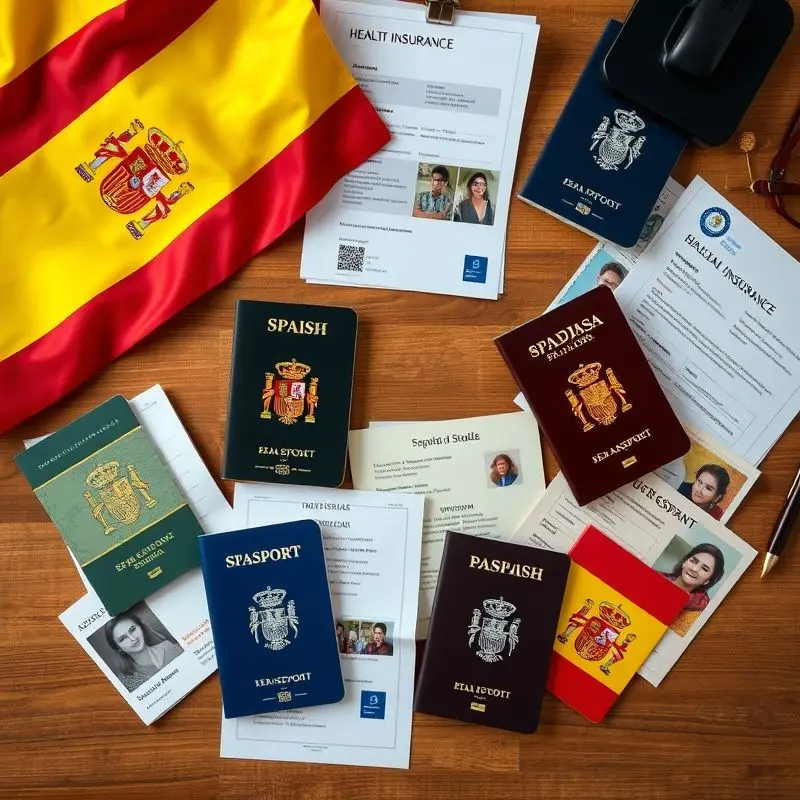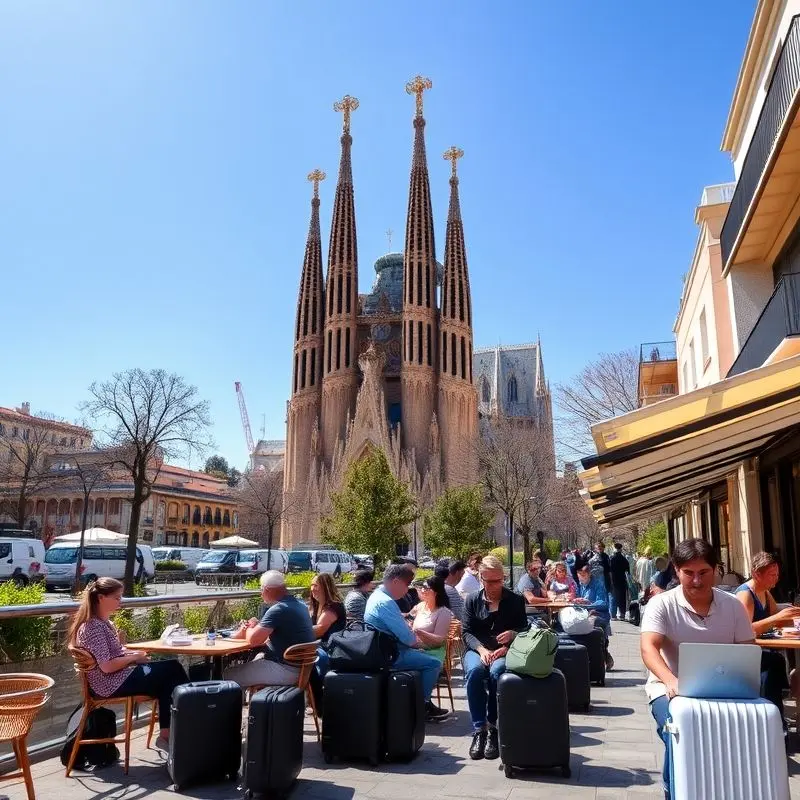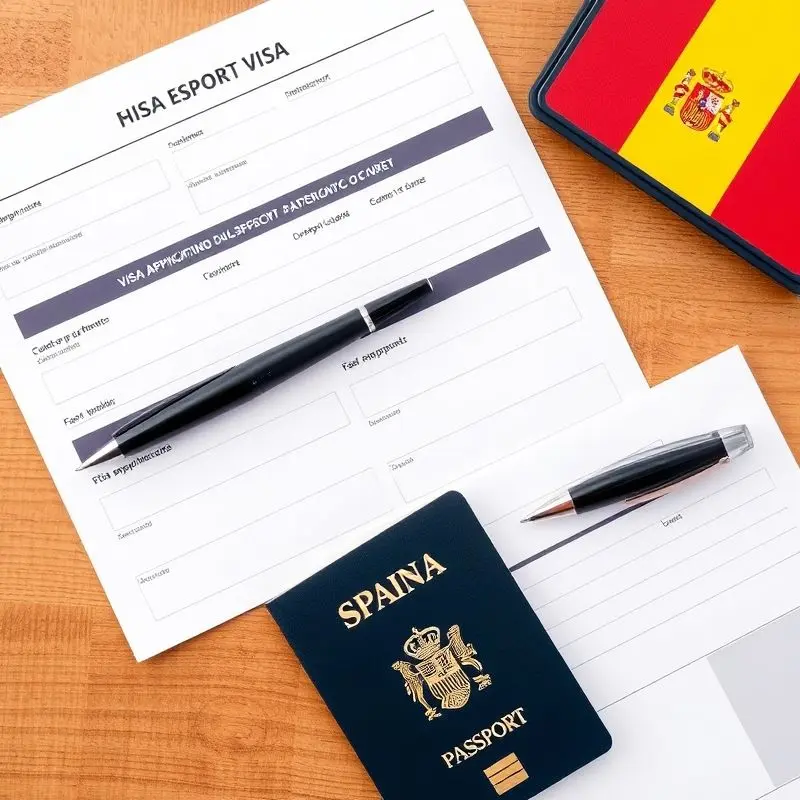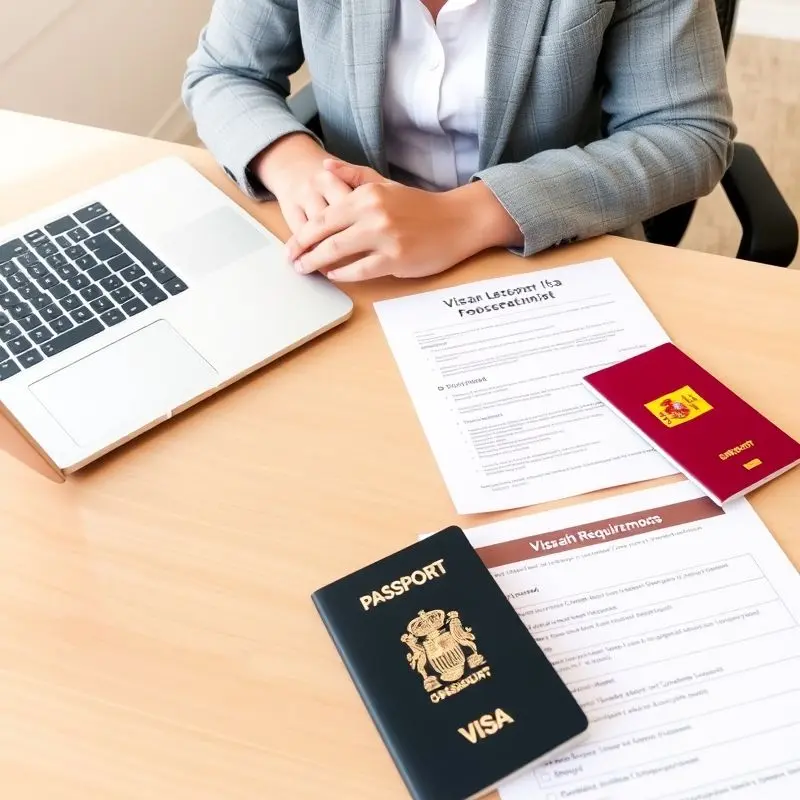Tired of complicated immigration procedures? Discover the easiest, step-by-step way to legally live in Spain.

Why Spain? The Ultimate Dream Destination
Imagine sipping sangria on the beach, exploring cobblestone-paved ancient cities, or simply enjoying a quieter, more affluent lifestyle. That’s Spain—an irresistible combination of sunny weather, delicious food, affordable living, and a laid-back culture that attracts people from all over the world.
So, what’s stopping you?
If the immigration process seems overwhelming, don’t worry—you’re not alone. But the truth is, moving to Spain legally is easier than you think, especially when you follow the right path. Whether you’re a retiree, an investor, a student, or a remote worker, this guide breaks it down into simple, practical steps.
Let’s dive into the easiest ways to make Spain your new home.
Understanding Immigration to Spain
Spain’s Immigration System: It’s Not as Complicated as It Seems
Spain has one of the most flexible immigration systems in Europe, offering a wide range of visa options tailored to various needs. From non-lucrative work visas to business visas, you’ll find almost anything that suits you.
Why People Move to Spain (And Never Look Back)
Some come for the sunshine, while others come for the relaxed pace of life. Spain is a particularly attractive destination for its:
- Affordable Cost of Living
- High Quality of Life
- Excellent Healthcare System
- Safe Cities and Welcoming Communities
- From Tourist to Resident: Moving to Legal Residency
Tourists from non-EU countries can stay in Spain for up to 90 days without a visa (Schengen Area). However, if you want to stay longer or become a permanent resident, you’ll need to move to legal residency.
Types of Residence Visas in Spain
Non-Profit Visa (NLV) – Ideal for retirees and remote workers
This visa is the ideal choice for many expatriates. You must prove your financial independence and that you are not employed by a Spanish company.
Student Visa – Study and Explore Spain
Are you planning to study in Spain? A student visa allows you to legally reside for the duration of your studies.
Work Visa – Employment Sponsorship Required
Less common due to employer sponsorship requirements, but still an option if you secure a job before arriving.
Digital Nomad Visa – New and Exciting
Recently launched, this visa allows you to reside in Spain and work remotely for non-Spanish companies. It’s very popular among freelancers and entrepreneurs.
Step by Step: How to Move to Spain Legally
Step 1: Choose the Right Visa
Your lifestyle and goals will determine which visa is best for you. Are you investing? Retiring? Working remotely? Be honest with yourself.
Step 2: Gather the Required Documents
Most visas require:
- Proof of Income/Funds
- Medical Certificate
- Background Check
- Private Health Insurance
- Passport Photos
- Visa Application Form
Step 3: Apply at the Nearest Spanish Advice Center
Applications must be submitted in your home country. Processing times vary, but typically take one to three months.
Step 4: Travel to Spain after Approval
Pack your bags and book a one-way ticket. Your visa will allow you to enter and stay for the initial stay.
Step 5: Get your Alien Identity Card (TIE)
Once you arrive in Spain, you have 30 days to apply for your Alien Identity Card (TIE) – your official residence card.
Living Legally in Spain
TIE vs. NIE: What’s the Difference?
NIE: Alien Identity Number.
TIE: Actual Residence Card.
You need both. The NIE serves as your social security number. The TIE proves you are legally resident.
- Register your address: Empadronamiento
Visit your town hall and get your empadronado card. This registration allows you to: - Register for public healthcare
- Register children for school
- Apply for services
- Open a Spanish bank account
Required for rent payments, billing, and proof of local financial ties. - Healthcare and Insurance in Spain
Spain has a world-class healthcare system. Expats typically start with private insurance to qualify for public healthcare.
Tips for a Comfortable Life in Spain
- Best Cities to Live in
Madrid: Big City Life - Valencia: Family-Friendly and Affordable
- Seville: Historic Charm
- Granada: Economical with a Moorish Touch
Cost of Living in Spain
On average:
- Rent: €600-1,000 per month
- Groceries: €200-300 per month
- Health Insurance: €50-100 per month
Learning Spanish: Just Do It
Even basic Spanish will help you navigate life, meet locals, and avoid misunderstandings.
- Find Your Tribe: Expat Communities
Join Facebook groups, attend meetups, or use apps like Meetup or Internations to connect with fellow foreigners. - Avoid These Common Immigration Mistakes
Incomplete Documentation
One missing paper = rejection. Double-check everything. - Ignoring Visa Timelines
Overstaying even one day can lead to bans or deportation. Set reminders.
Learning Spanish: Just Do It
- Even basic Spanish will help you navigate life, meet locals, and avoid misunderstandings.
- Find Your Tribe: Expat Communities
Join Facebook groups, attend meetups, or use apps like Meetup or Internations to connect with fellow foreigners. - Avoid These Common Immigration Mistakes
Incomplete Documentation
One missing paper = rejection. Double-check everything. - Ignoring Visa Timelines
Overstaying even one day can lead to bans or deportation. Set reminders. - Assuming Tourist Visas Are Enough
Tourist stays do NOT equal residency. Don’t risk it.
Is Spain Right for You?
Pros
- Affordable lifestyle
- Vibrant culture
- Healthcare and safety
- Friendly locals
Cons
- Bureaucracy
- Language barrier
- Slower pace (if you’re used to hustle culture)
Conclusion
Moving to Spain doesn’t have to be complicated. With the right visa, a bit of preparation, and this guide, you’re already one step ahead of the game.
Spain offers more than just a place to live—it offers a life worth living. So, why wait?
Pack your dreams, book that flight, and say ¡Hola! to your new home.
FAQs
Is Spain safe for solo expats?
Absolutely! Spain ranks high on global safety indexes, and solo travelers are very common. Trendy, Beachy, Cosmopolitan
Can I work remotely in Spain legally?
Yes, with the digital nomad visa, you can live in Spain while working for a non-Spanish company.
What is the cheapest way to move to Spain?
The non-lucrative visa is affordable for retirees or freelancers with savings.
Do I need to hire an immigration lawyer?
It’s optional. Many people apply successfully on their own, but lawyers can save time and stress.
How long can I stay in Spain without a visa?
90 days in any 180-day period for most non-EU nationals.
Assuming Tourist Visas Are Enough
Tourist stays do NOT equal residency. Don’t risk it.










